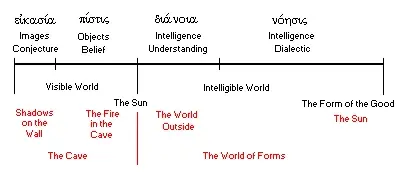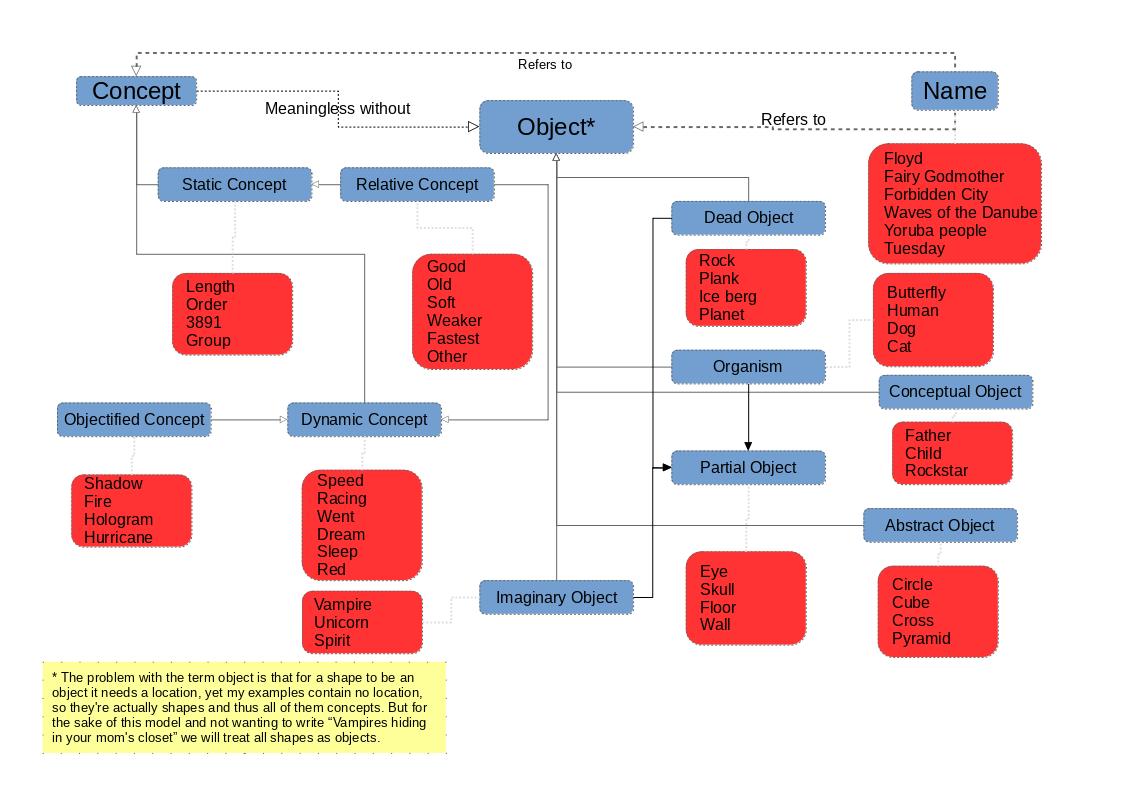This was supposed to be a webvideo on a decentralized platform as I don’t trust youtube.
Anyway, here I go.
“Hello and welcome to Kanal d Folât”
I am Folât and in this video I want to talk about the allegory of the cave, also known as Plato’s cave and show why it’s wrong.
For those of you who don’t know, Plato is a Greek philosopher, a student of Socrates, and Plato’s cave is a parable by Socrates. And a parable is a fable with human characters. So what good manners is Socrates trying to instill?
Let’s find out:
Click on this link. https://www.youtube.com/watch?v=UQfRdl3GTw4
– PAUSE –
Have you watched it? Good!
I don’t know what your reaction to the video was, but I’m going to show you examples of how people have interpreted this video as well as other versions on the web.
(To do: examples go here)
So I want to start out with a question first… does anyone ever think “You know that guy on the right over there? Yeah that’s me. I’m one of the stupid ones over there, just like the majority of people. I’m not that enlightened main character guy.” or does anyone think “Yup, that’s me! Making shadow figures fooling the crowd.”
So I will argue instead that I’m not one of Plato’s “enlightened ones”, because I don’t like being tricked into a generic ego pleaser that contains a story where anyone can insert him- or herself, not realizing that almost everyone inserts him or herself as the main character and think you are the ignorant fool or the puppeteer.
But does this parable tell you which one is which?
Well Socrates has a theory of what he thinks contains true knowledge and what he thinks is merely a derivative of the truth.
“So is it the media?” Nope! “Are these our politicians?” Nope! "Shadowy figures controlling our politicians behind the scenes " No!
Socrates’ fools can be summed up as nobel prize winners.
Yes, nobel prize winners and university professors except those teaching philosophy.
Socrates categorizes truth in a hierarchy in which one truth is more truthier than the other truth.
And to sum them, here are Socrates’ four truths list, known as the analogy of the divided line,
starting with least truthiest to the truthiest of them all:
#4. Optics, one branch of physics that studies light
#3. The rest of physics
#2. Mathematics
#1. Philosophy
And the reasoning for why Plato put the last two on top was because the last two are timeless, while the first two aren’t.
According to Socrates and Plato, this makes physics just merely an opinion, while only mathematics and philosophy contain true knowledge.
And with philosophy being the one concerned with reality, it makes philosophy the truthiest of them all.
Thus those silly mathematicians and physicists are mere fools watching physics and math lessons, while the true knowledge can be found in philosophy. You can only see the light if you’ve taken a study in it.
Now, I’m not even going to say that Socrates and Plato picked the wrong targets as fools or even say that philosophy can’t be truly enlightening, as far as I know, all Nobel prize winners in chemistry, physics and so forth so far have all been physicalists and this is a video on why materialism is the only truthful philosophy and not modern mainstream physicalism.
It’s just that …
A) As long as the study taught is based on materialism, you’re being taught correctly and thus you’re not being left in the shadows like we see in his parable.
B) His philosophy is idealist.
and last but not least…
C) Parables are simply not a good way of proving a point.
What are idealism and materialism you ask?
Well idealism it’s the philosophy that the world is constructed out of concepts or ideas and that objects are only a derivative of that. If you stop being consciousness, the world stops existing.
And materialism on the other hand puts the object in front and center of reality. The universe exists regardless if there’s any there to experience it.
And panpsychism, pluralism, dualism, all forms of semi-monisms, and yes I will say that this includes modern mainstream physicalism, are on a sliding scale between these two philosophies of which I posit materialism is the only correct one.
If you think calling something truthier is stupid, that’s because it is.
There’s no such thing as being more true than not, except in a manner where true false statement is made about an object that contains sub-objects of which the statement is true for one sub-object and false for another.
For example, “This pen is blue” in which I point to a pen of which it’s metallic portions are colored metallic silver, but the rest of the pen is blue, still counts as the pen being blue, but is technically not a 100% true statement.
Truth cannot be categorized into four truths, of which philosophical truth is the highest truth of all.
You need objects to form ideas. Without a brain, you cannot form ideas. And even without a brain, if there are no objects in the universe, then there is nothing to hypothetically think about. There are no concepts without objects.
And some concepts even require subcategorized objects. Like good and evil. Plato’s form of good is useless if there aren’t any organisms.
How can you have a just world if there’s nothing alive to justify it’s actions to?
What is justice if all the world contains is just space dust, stars and floating rocks?
Is a star just or unjust when it does or doesn’t shine?
There’s only one truth and that’s the truth of material objects in our world.
All other truths are merely subsets of this one.
All other truths about logic, mathematics and philosophy would not exist without it.
There’s no mathematics without a shape to measure, no logic without anything to compare and no philosophy if there’s nothing there to talk about.
Lastly, I would like to say that using parables is an easy way to win a philosophical argument, but a terrible method to examine reality.
It’s strength lies in confusing everyone and playing on people’s emotions. In this parable it’s the emotions of conspiracy and exceptionalist flattery without much context.
The correct way of winning arguments in terms of truthfullness is to first and foremost validate them according to a list of fallacies systematically.
Only then can the truth of the reality that we live in be described accurately.
Thank you for watching Kanal d Folât, see you next time, goodbye and goodnight.
deleted by creator
Just make your arguments clear, simple and as concise as possible.
Refine them until there’s no argument left.For example, let’s say that our reality we see is an illusion just like those shadows on the wall…

You need objects to create that illusion and at least as much objects as the mount of object the illusion shows.
For example, you need a cave wall, at least one block of wood to burn, a stick with a figure on it and at least one person to hold that stick. That’s 4 objects to create one illusion.
You also need a brain in order to achieve any intelligence, no brain, no intelligence, understanding or dialectic. In contrast, I can have a coffee cup without any of those concepts.
So I will present this model I made inspired by a materialist on youtube advocating for materialism over physicalism:

Now, if I could create a glossary of all the words used in my philosophical theory, a standardized validation test and I’m able to pass this through that test (I’m discovering today that it still needs some work), then a first version of this philosopical theory should be finished.
deleted by creator
No, I’m adding physicalism because they won’t pass the fallacy validation test.
They use Irrational abstract objects, which are concepts and also reify concepts in several ways.
Long story.
I just discovered communism has dialectical materialism.
I myself am an philosophical materialist.
They probably go hand in hand, but we’ll see.deleted by creator
The problem is if you believe physicalism is false their idea makes sense.
Whose idea?
deleted by creator
No, physicalism is wrong because it takes materialism and then turns it back into a form of idealism yet again and then pretend that it is materialism. It’s fake materialism.
Physicalism is not materialist enough.Frogs can jump, walls can not.
Ropes can bend, spacetime can not.
There are no light wave-particle dualities, just like there are no holy trinities.It’s that simple.
The problem with platonic idealism and idealism in general is that they claim existence of another world that’s more real than the material world that we see and experience. And what we experience in the material are fake imitations or shadows of the real world™️. There’s nothing wrong with these theories if that’s the kind of games you like to play except that it’s a waste of time and doesn’t matter. If I’m hungry then I need the imitation material bread rather than the platonic form of bread. The imitation certainly has more reality than what idealists claim is the essence of bread (who cares what it is) when I’m hungry. What’s the value of a person that can give a rousing speech about the essence of bread compared to one who can grow wheat and grains and bake bread? Can a philosopher sustain themselves without a farmer? Why didn’t Diogenes grow food?
Another issue is the hypocrisy in the cult of idealist philosophy. Every philosophy nerd will say of Socrates that he wrested philosophy from the heavens and brought it down to earth and fan girl over how cool the world of forms is. But the world of forms is the origin of the idea of heaven in the western world?? And the same with Kant. The noumena in transcendental idealism is the same forms nonsense.

